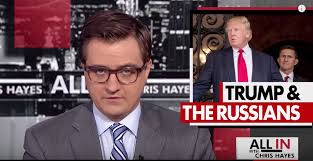


President Trump, the Russian Connection & Crisis Communications
By Bruce Hennes, Hennes Communications
Some believe President Trump and his closest advisers committed illegal acts by conspiring with Russian officials on a wide variety of political and financial activities.
Some believe President Trump and his closest advisers indeed had contacts with Russian officials, but that those contacts were benign or perhaps even stupid, but not criminal.
Our friend and colleague, Peter Sandman, often writes about crisis communications, which he calls “outrage management.” Sandman says the value of outrage management as it relates to the Trump/Russia boondoggle depends on what the truth is:
To prevent stakeholders from getting more outraged about something than the actual situation justifies … or, failing that, to ameliorate their outrage [until] it’s more commensurate with reality. When what you did was really awful and people are rightly extremely upset, the outrage management toolkit can still help a bit around the periphery (see Managing Justified Outrage), but at that point your central problem isn’t that people are upset; it’s what you did. I would never want to teach someone outrage management in order to help that person get away with bad stuff about which people should be outraged. And if I did, it wouldn’t help much anyway.
So the value of outrage management for ameliorating the furor over contact between Russian intelligence and people associated with the Trump campaign depends on what the truth is.
The underlying question here, at least one of them, is whether the Trump campaign’s contacts with Russian intelligence operatives were stupid or evil. (See The Stupidity Defense.)
At the evil extreme, assume that candidate Trump and his associates conspired with the Russian Government to win him the presidency, in return for which he promised various policy quid pro quos that he now intends to fulfill. If that’s the truth, then his only hope of saving himself and his treasonous presidency is to keep that truth from coming out. I have no desire to help him, and outrage management wouldn’t help much anyway.
Sandman then examines the opposing point of view:
Now let’s make some contrary and I think likelier assumptions…
- Assume that Trump’s desire for a reset with Russia isn’t part of a deal but simply a policy position with debatable pros and cons about its feasibility and desirability.
- Assume that Russia hacked the DNC and others, and selectively published some of what it learned, without the prior knowledge or involvement of the Trump campaign. Assume that its goal in doing so was primarily to weaken the Clinton presidency it expected, and secondarily to improve the odds of the Trump presidency it preferred – a long shot that came in.
- Assume that Trump campaign and transition leaders did a normal and reasonable amount of reaching out or responding on his behalf to the Russian ambassador to the U.S. and other Russian officials – aiming to establish the beginnings of a relationship and, within legal and ethical bounds, to send signals about what a Trump presidency might be like.
- Assume that Russian intelligence made a concerted effort to meet with Trump associates, aiming to wheedle as much information as possible about what a Trump presidency might be like (including the likely fate of Obama sanctions), and to establish the beginnings of a relationship with the people likeliest to become senior administration officials in a Trump administration.
- Assume that the meetings that took place between Russian intelligence people and Trump associates were somewhere between benign and naïve on the part of the Trump people – that the Russians may have learned more than the Trump associates realized they were sharing but that there was no conspiracy, no deal-making, no negotiated quid pro quo.
- Assume that Clinton associates also had communications with Russian intelligence (after all, many Clinton associates, including President Obama, had run or were still running the U.S. Government). But the Russians already knew as much as they needed to know about the Clinton presidency they expected, so there would have been less need to feel out Clinton associates. And Clinton associates were mostly old diplomatic hands who would have been less likely to say more than they intended to say.
With this set of assumptions, there’s no there there, no actual scandal based on facts we know so far – just an over-reaction fueled partly by Democrats’ and journalists’ anti-Trump animus; partly by the general public’s free-floating anxiety; partly by President Trump’s pugnacity and unpredictability; partly by leaks from the U.S. intelligence community and the White House itself; and partly by the failure of Trump associates to acknowledge forthrightly the germs of truth at the center of the ruckus.
Assuming the outrage is out of proportion to the facts, what should President Trump do to manage the outrage?
To read the rest of Peter Sandman’s article and see what advice he would give to the president and his team, click here.
If you’ve ever attended any of the seminars we teach on crisis management, you know our mantra: Tell the truth, tell it all, tell it first and tell it fast.
Obviously, it’s too late for President Trump to do the first and fast part.
But it’s never too late to tell the truth and tell it all.
(This piece originally ran in the 9/1/17 issue of Crisis Management Today)